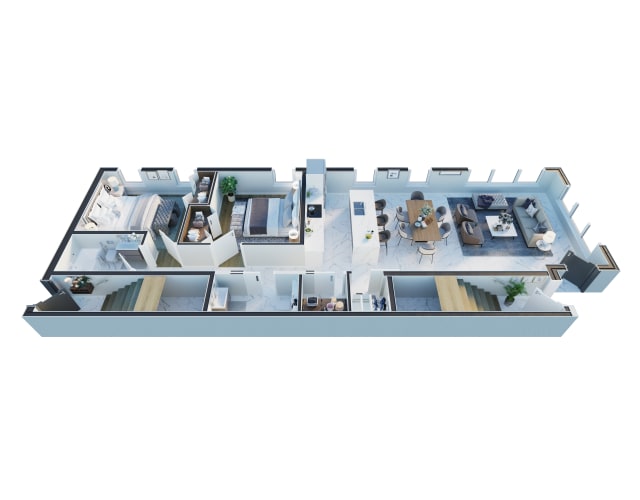The Ethical Implications of AI in Architecture
by RealSpace
Artificial Intelligence (AI) has rapidly made inroads into various sectors, and architecture is no exception. The adoption of AI in architecture promises enhanced productivity, precision, and the capability to tackle complex problems with unprecedented efficiency. However, as with any transformative technology, it brings forth a range of ethical concerns. This article explores the ethical implications of incorporating AI into the world of architecture and provides a balanced view of its pros and cons.

The discipline of architecture has always been a confluence of art and science. Technology has been an enabler of architectural visions, from the drafting tables of yesteryears to today’s sophisticated architectural software. AI, with its capacity to process vast amounts of data and learn from it, offers architects a tool of unparalleled power. Yet, with great power comes great responsibility.
Potential Benefits and Ethical Upsides
- Democratization of Design: One of the significant promises of AI in architecture is the democratization of design. Even those without formal architectural training can use AI-driven tools to take part in the design process. This could lead to more inclusive urban planning, where local communities have a say in developing their neighbourhoods.
- Enhanced Sustainability: AI can analyze many design variations quickly, considering factors like sunlight, wind patterns, and energy consumption. This allows architects to create more sustainable designs, aligning with global efforts to combat climate change.
- Preservation of Heritage: AI can be used to digitally map and reconstruct historical buildings and sites, ensuring that cultural heritage is preserved for future generations, even if the actual structures are at risk.
- Job Displacement: One of the most discussed ethical implications is the potential for AI to replace human jobs . While AI can enhance an architect's work, there's a looming fear that it might replace the need for human architects for specific tasks. This could lead to job losses and the devaluation of human expertise.
- Homogenization of Design: If architects globally rely on similar AI algorithms and tools, it might lead to a homogenization of architectural designs. Cities could lose their unique architectural identities, leading to a globalized sameness in building designs.
- Data Privacy: AI systems require vast amounts of data to operate efficiently. This might involve collecting data about how people use and move within architectural spaces. Without strict controls, this could raise significant privacy concerns.
- Loss of Intuitive Design: Architecture is as much an art as it is a science. The intuitive feel of a space and the emotional reaction a design evokes are intangibly human. Over-reliance on AI might prioritize efficiency over emotion, leading to technically perfect spaces that lack soul.
- Continued Learning: As AI systems evolve, architects and urban planners must update their knowledge continuously. Understanding how AI works can help in making informed decisions about its application.
- Setting Boundaries: Architects must decide where to draw the line. Which parts of the design process benefit from AI intervention, and which aspects should remain human-centric? Answering these questions can ensure that AI is a tool, not a replacement.
- Ethical AI Design: AI developers and architects should collaborate to design AI tools that adhere to ethical standards. This includes ensuring data privacy, avoiding biases in AI algorithms, and creating systems that augment human abilities rather than replace them.

Potential Concerns and Ethical Downsides
Balancing Technology and Ethics
Integrating AI into architecture is a challenging journey. It requires architects to balance the potential of technology with ethical considerations.

Conclusion
Artificial Intelligence is a powerful tool but only a tool. Its value in architecture, or any field, depends on how it's used. As architects harness AI's power, they must also grapple with its ethical implications. The challenge lies in marrying efficiency with ethical technology with humanity. By navigating this path with care, architects can ensure that future cities are not just smart but also reflect the collective ethos of their inhabitants.
















